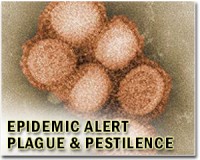| . |  |
. |
Kampala (AFP) Feb 3, 2010 A US decision to freeze spending on treatment for HIV in several African countries has prompted concern that some of the gains made against the AIDS epidemic since 2003 could be reversed. President George W. Bush's Emergency Plan for AIDS Relief (PEPFAR), launched in 2003, focused largely on treating patients in urgent need of medicine, but the new US administration's programme has shifted away from emergency treatment. "George W. Bush is a hero in this country," said Peter Mugyenyi, who heads Uganda's Joint Clinical Research Centre, a leading AIDS treatment clinic. Uganda received 929 million dollars (678 million euros) from PEPFAR between 2003-2008 and used much of those funds to provide some 150,000 people with Antiretroviral therapy. But the US switch in emphasis means that clinics are now being forced to turn new patients away. "We had drugs under PEPFAR. We didn't have to turn patients away," he told AFP. While PEPFAR expanded access to medicine, new HIV infections rose. So, when PEPFAR was up for renewal the new administration of President Barack Obama demanded greater focus on preventing new infections. "We have all lost momentum on the prevention front and we're paying for it now in the form of rising prevalence," PEPFAR's Kampala-based spokeswoman Lynne McDermott told AFP in an email. The difficult economic climate meant spending more on prevention necessitated cutbacks on treatment in a country where the infection rate is 6.4 percent in a population of 31 million. Patients who are already enrolled in a PEPFAR programme will continue receiving free drugs, but most clinics have been told to stop acquiring new patients. Mugyenyi accuses the United States of breaking its promise to Uganda. "They have changed their programme very regrettably," he said. "The number one thing is availability of treatment. Any other programme, whatever name they call it, will fail." Douglas Mugabi, a thin, softly spoken farmer who lives just outside Kampala, told AFP that he and his wife tested positive in 2003, and, when his health deteriorated in 2006, he began receiving free drugs. Last year, his wife's condition also worsened. "When I came in and we found out there was no longer a free programme I became cold," the 48-year-old said. "My wife is worried because the drugs are expensive, but according to our means, we couldn't support a life-long treatment." Mugyenyi said many patients have similar stories. "PEPFAR promised them that if they need treatment they would get it," he claimed. "So the US should not say they are keeping their promise." McDermott said the US cannot continue treating an ever-increasing number of patients and that unless new infections are reduced Ugandans will always be faced with drug shortages. She noted that PEPFAR continues to provide two thirds of all HIV/AIDS money in Uganda, and urged Uganda "to identify other resources to fill the remaining gap." Other resources are not readily available in Uganda, or elsewhere on the continent. In a November report Medicins Sans Frontiere detailed freezes on ART spending across Africa. The report accused PEPFAR of "reneging on promises made last year," but also apportioned part of the blame to the Global Fund, the public-private partnership whic disburses extra funds to treat HIV/AIDS, tuberculosis and malaria. Eric Goemaere, an HIV specialist with MSF who has worked in several southern African nations described the notion of spending more on prevention to slow the epidemic as a "fake argument". He said any prevention strategy relies on people getting tested. "Why were people getting tests? It is because treatment was available. "If you look at the facts, it does not make any medical sense to cut back on treatment," he insisted. One concern is that people like Mugabi might begin sharing their free drugs with a sick friend or family member. When patients don't take their drugs as proscribed they are more likely to develop a drug resistant strain of HIV. So pill sharing can be catastrophic. Mugyenyi told AFP he is "panicking". "We are heading to carnage. Carnage which had been put to a stop," he said. "There is no prevention programme that can succeed without treatment."
Share This Article With Planet Earth
Related Links Epidemics on Earth - Bird Flu, HIV/AIDS, Ebola
 Global swine flu death toll falls in past week: WHO
Global swine flu death toll falls in past week: WHOGeneva (AFP) Feb 5, 2010 The global death toll from swine flu has risen to 15,174, up 463 from a week ago, but the pandemic is steadily losing momentum around the world, the World Health Organisation said on Friday. "As of 31 January 2010, worldwide more than 209 countries and overseas territories or communities have reported laboratory confirmed cases of pandemic influenza H1N1 2009, including at least 15,174 death ... read more |
|
| The content herein, unless otherwise known to be public domain, are Copyright 1995-2010 - SpaceDaily. AFP and UPI Wire Stories are copyright Agence France-Presse and United Press International. ESA Portal Reports are copyright European Space Agency. All NASA sourced material is public domain. Additional copyrights may apply in whole or part to other bona fide parties. Advertising does not imply endorsement,agreement or approval of any opinions, statements or information provided by SpaceDaily on any Web page published or hosted by SpaceDaily. Privacy Statement |